African house snakes are great pets that are relaxed and require low maintenance.
They are perfect for people with no previous experience as they are easy to take care of. You will not have problems with them, especially feeding them. They love rats and mice, especially frozen pinky mice.
However, sometimes you cannot tempt your snake to eat. Although you do a perfect job taking care of your snake pet, sometimes they will not eat, and that is when owners panic.
Sometimes there is no reason to worry, but sometimes you should because snakes that do not eat for a long time may develop infections or starve to death.
Keep reading to find out the reasons your African house snake will not eat:
Everything you need to know about caring for African house snakes in captivity:
Read our African House Snake Care Sheet (Complete Guide)
1. Stress
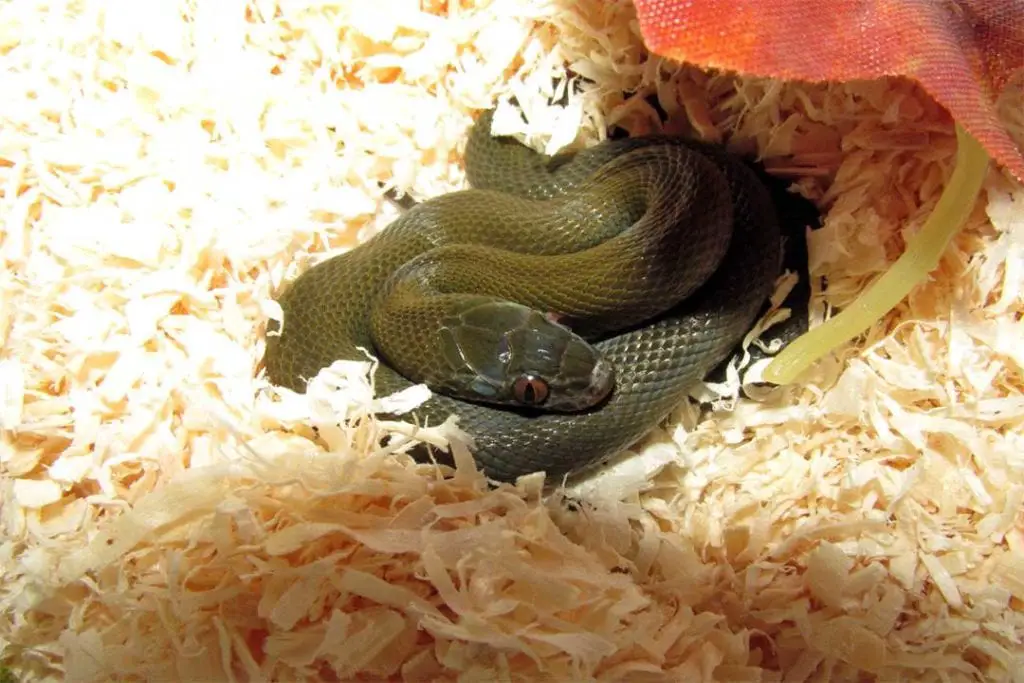
This is a common reason your snake refuses to eat. If you have just brought it to your home, your snake will stress out as it does not like changes. If your snake does not want to eat, it means it has the stress of moving. In this case, leave your snake alone for a while to adjust to the new environment.
If you have a snake for a while, check for other changes. If you have moved the terrarium to a new location or changed light or temperature, it may be another reason your snake does not eat. Also, new pets at home contribute to the snake’s appetite. Always be careful when it comes to introducing your snake and other pets.
Keep in mind that a common mistake new owners do is over-handling their snake. Do not hold it if it is a juvenile unless it is necessary.
2. Shedding
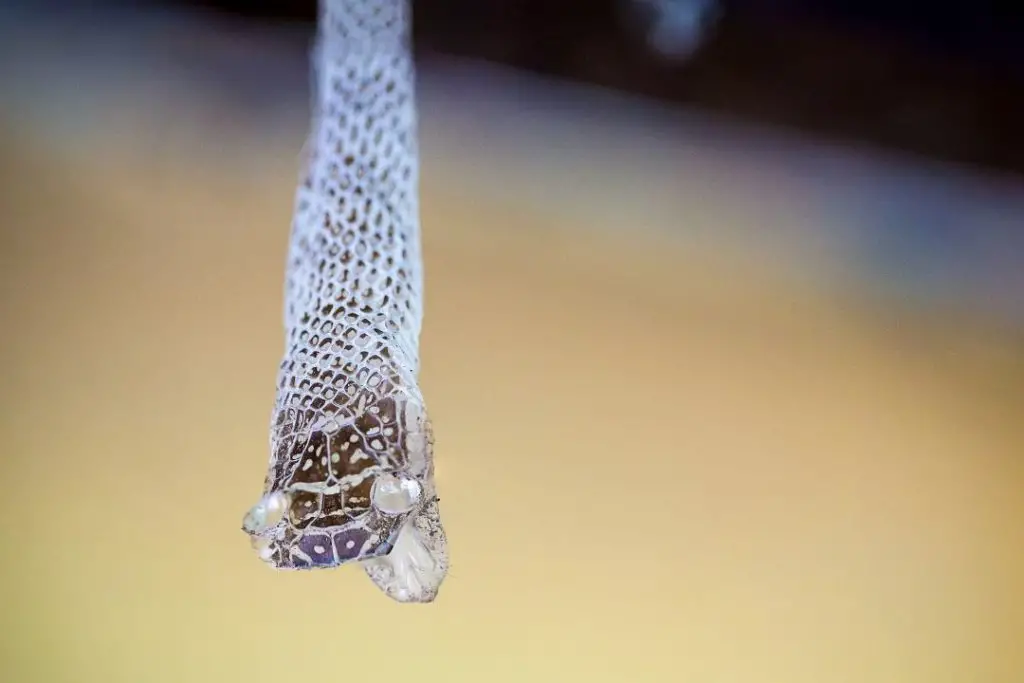
Your African house snake will lose its appetite for natural reasons. When this happens, you will not need to do anything, because your snake is healthy. Of course, you need to monitor your snake’s behavior to spot any changes and react to them.
Shedding is the common reason your snake stops eating, even for days or weeks. If your snake has paler scales than usual and milky eyes, then that is the case. During this time, leave your snake alone, except to change the water and let it shed its skin in peace. If your snake has trouble shedding, help it out with some shedding agent.
Another natural reason your snake will not eat is seasonal changes. Also, hibernation attempts make snakes less energetic and make them lose their appetite.
Another natural cause that needs no intervention is the age factor. Younger snakes are growing up and need more food and the adult snake will eat far less. If your snake does not eat, consider its age because maybe it is normal that a snake needs less food.
3. Temperature and Humidity
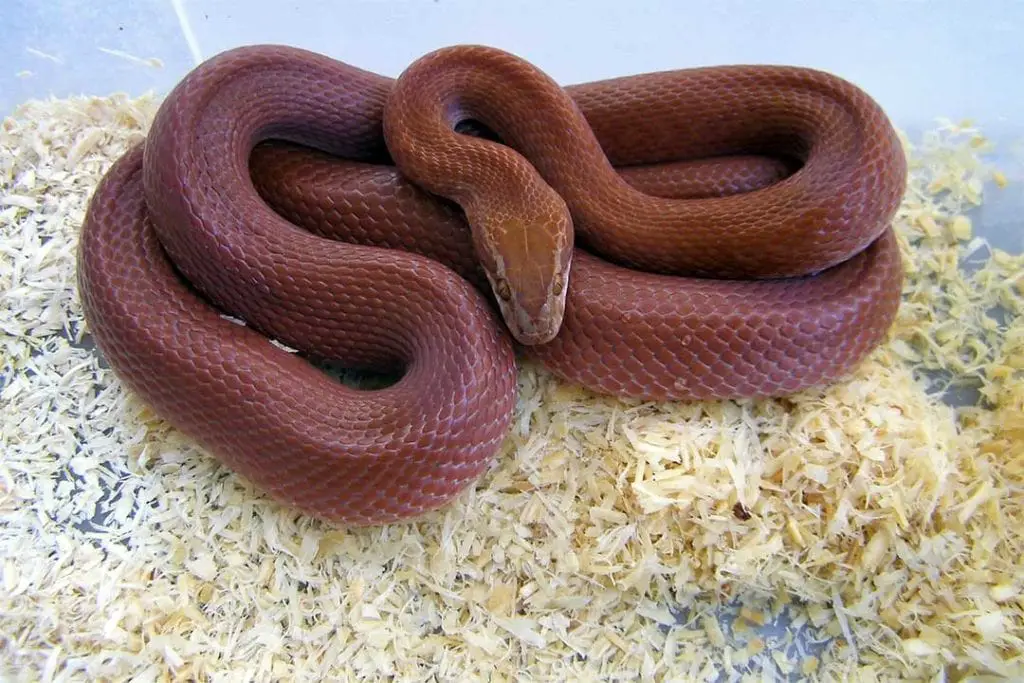
Snakes depend on their environment to stay healthy. They need a warm atmosphere to have a good appetite and digestion. If the snake’s enclosure is too cold, it may develop digestive problems and lethargy.
Slow digestion causes food in a snake’s belly to rot and serious problems such as pneumonia and respiratory infection. On the flip side, keeping your snake in the too hot enclosure can be very stressful. Do adequate research to check the right temperature for your snake’s environment.
Use a thermostat to control heating elements, because inadequate humidity levels can also lead to skin disorders resulting in low appetite. Choose a good substrate for your snake, such as aspen shavings. African house snakes are burrowing species and they will love this type of bedding.
4. Feeding and Surrounding
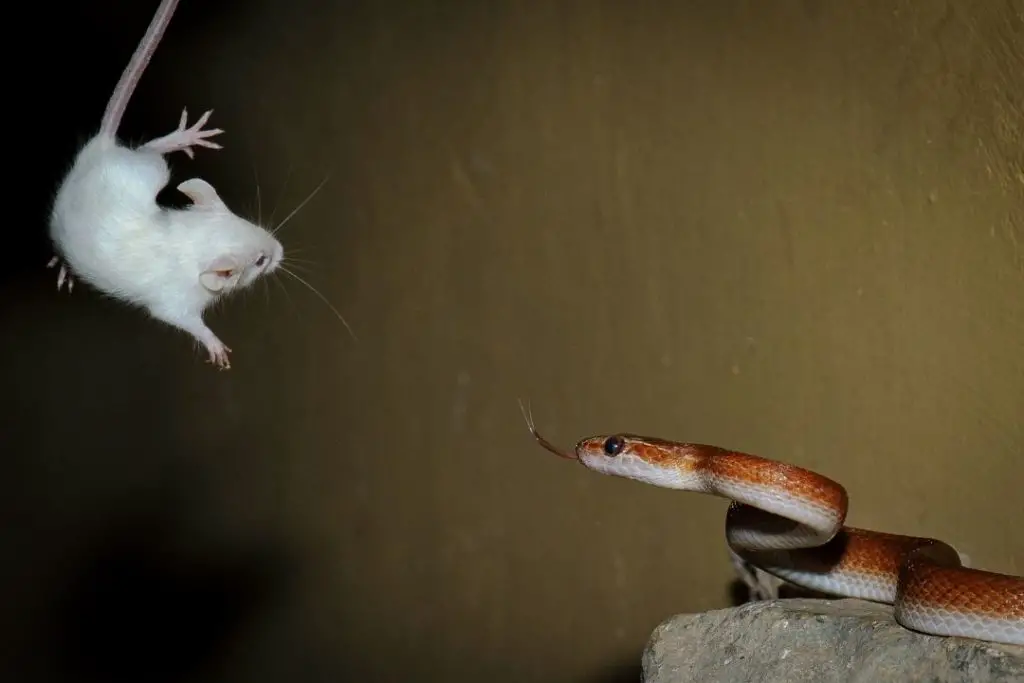
Look at your snake’s tank set up. Snakes enjoy hiding and feeling as if they have hidden from sight. If the tank is in a high-traffic area of the house and there is no actual place for the snake to feel safe outside of the hide, your snake will feel anxious and will have a poor appetite.
Add moss, driftwood, or fake plants to make your snake feel less self-conscious. Also, adjust the light to be dim. Hold the feeder by the tail using tongs and play with your snake a little. For example, move the feeder around your snake. It will make the snake feel interested. The snake will try to take down its prey and eat it.
Also, try to balance the cycle of daylight and darkness as this helps the snake to survive in its enclosure. You need to invest some time and find the right cycle for your pet. Once you find it, it will be easy for you to provide it for your snake.
Snakes are carnivores, but different species require special types and amounts of food. African house snakes eat mice, rats, lizards, so always give your snake what it needs to stay healthy and relaxed. If you are not sure what a snake eats, talk to your vet.
As I said before, snakes like to hide. They need their privacy just like other pets. Prepare cardboard boxes for your snake so that it can hide during the day. When a snake does not have its privacy, it will lose its appetite, so try to make it happy by providing a safe corner.
5. Snake Diseases
There are many snake diseases that impact your pet’s appetite. Some are treatable, while others may be fatal for a snake. Keep an eye on your pet to make sure there are no signs of these disorders and if you are not sure, visit a vet as soon as possible. Here are some diseases that cause low appetite in snakes.
Mouth Rot
Your snake may develop mouth rot, which is noticeable. Factors such as unsanitary conditions and stress cause it. Snakes have very specific needs that owners must meet in order for their snakes to remain healthy.
They are at risk of becoming ill if owners do not meet any of these requirements. The snake’s immune system can become weak if it does not have a proper diet and habitat. As a result, it cannot fight off infections it would normally have dealt with, and bacteria can multiply and invade the mouth, causing mouth rot.
You will notice redness around and near the mouth or a lot of mucus. It is a painful and nasty mouth infection, and your snake will refuse to eat due to pain. Mouth rot is treatable, so make sure to visit the vet.
Respiratory Disease
Respiratory infections such as pneumonia are common life-threatening diseases that cause your snake to lose appetite. If you notice symptoms such as sneezing, eye or nose drainage, or breathing through the mouth, it is possible your snake may suffer from respiratory disease and will refuse to eat. If you suspect this, talk to your veterinarian.
Intestinal Parasites
Intestinal parasites or worms are common in snakes. If your pet snake has worms in the intestines, it will suppress its immune system’s response to these parasites, which makes the snake feel rotten and lose its appetite. You cannot see worms, so you must take a direct fecal smear from your snake’s stool sample. Contact your vet for a fecal screening if you think it is the reason your snake stopped eating.
Obstructions and Impactions
Sometimes snakes have their mouths full of something, and they cannot digest it properly. Also, they may not have enough moisture in the environment, which affects their defecation and because of that, they become impacted. Your snake may stop eating for these reasons. Warm water and soaks for 15-20 minutes help your impacted snake in passing its stool. On the other hand, obstruction requires surgery.
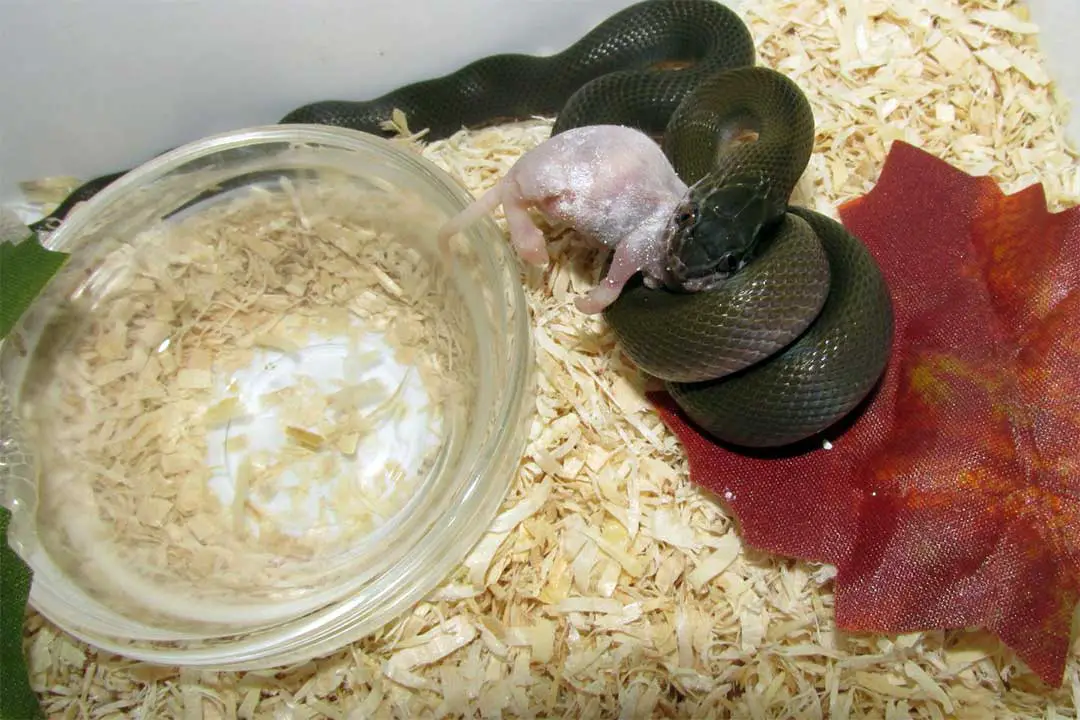
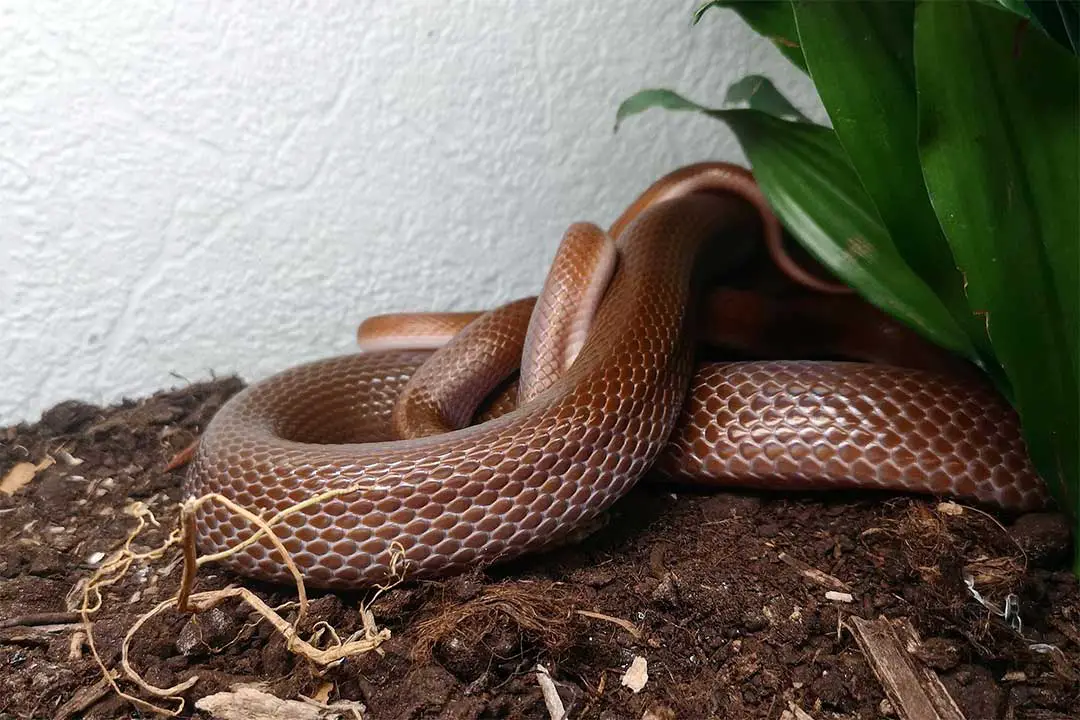
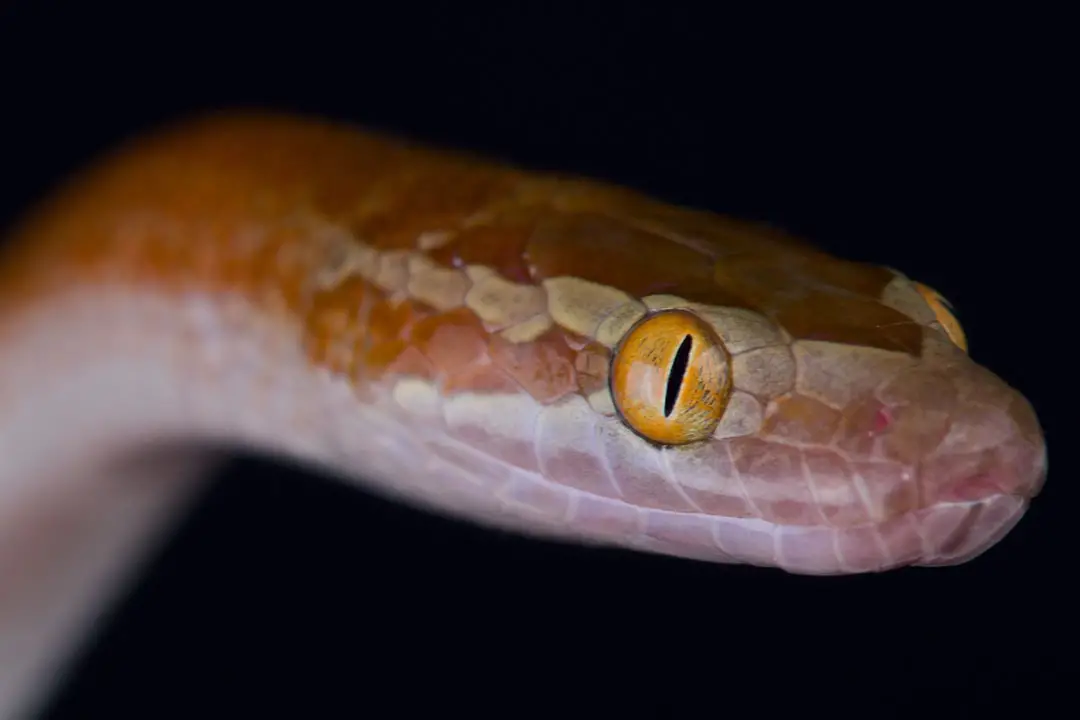
Hi my brown how snake has shed and it is still not eatin any advice